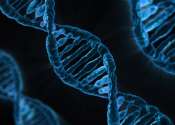Oligodendrocytes induce motor neuron death in ALS
A first-of-its-kind oligodendrocyte in vitro model shows that human cells normally supportive of motor neuron function play an active role in amyotrophic lateral sclerosis pathogenesis – and this discovery may point the ...
Sep 27, 2016
1
56






